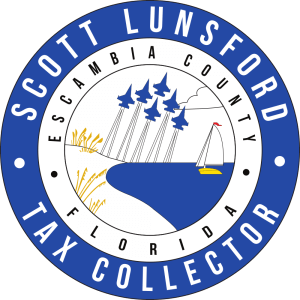There is a federal requirement that each state have minimum standards for the licensing of commercial drivers.
The State of Florida Department of Highway Safety and Motor Vehicles provides driver license testing information for drivers who wish to have a Commercial Drivers License (CDL). The information provided here is intended to be an introductory guide to the federal and state requirements for obtaining a commercial drivers license (CDL) and operating a commercial motor vehicle (CMV). Information on CMV operation requirements may be obtained from the Federal Motor Carrier Safety Administration (FMCSA).
You must have a CDL to operate:
- Any single vehicle with a gross vehicle weight rating (GVWR) of 26,001 pounds or more.
- Any combination vehicle with a gross combination weight rating (GCWR) of 26,001 or more pounds, provided the GVWR of the vehicle(s) being towed is in excess of 10,000 pounds.
- A vehicle designed to transport 16 or more passengers (including the driver).
- Any size vehicle that requires hazardous material placards or is carrying material listed as a select agent or toxin in 42 CFR part 73. Federal regulations through the Department of Homeland Security require a background check and fingerprinting for the Hazardous Materials endorsement.
To get a Florida CDL, you must hold a Florida Class E license and pass knowledge and skills tests. Formal training is the most reliable way to learn the many special skills required for safely driving a large commercial vehicle and becoming a professional driver in the trucking industry. Be prepared to have your photo taken and your vision checked. If corrected lenses are required, please have them with you.
Entry-Level Driving Training (ELDT):
Skills Testing Prerequisite
Applicants for a Commercial Driver License (CDL) must successfully complete a mandatory theory (knowledge) and behind-the-wheel (BTW) training program prior to taking the CDL skills testing. This includes:
- Obtaining a Class A or Class B CDL for the first time;
- Upgrading an existing Class B CDL to a Class A CDL; or
- Obtaining a school bus (S), passenger (P), or hazardous materials (H) endorsement for the first time.
ELDT Exceptions:
- Applicants with a CLP issued prior to February 7, 2022, who obtain a CDL before the CLP expires are not subject to the ELDT requirements.
- Individuals who hold a valid CDL, including those with an S, P, or H endorsement, are not required to complete additional ELDT training unless upgrading or adding endorsements as indicated above.
- Any individual who meets one of the exceptions for taking a skills test is also exempt from the ELDT requirements.
Locate a Training Provider
Hazardous Materials Prerequisite
Applicants for a hazardous materials (H) endorsement must complete mandatory theory training provided by a training provider listed on FMCSA’s Training Provider Registry prior to taking the knowledge test for the H endorsement.
Hazardous materials endorsement testing, as well as fingerprinting services, are provided at the Brentwood location.
More Hazardous Materials (HAZMAT) Endorsement Information
CDL Medical Card Information:
Based on new Federal Motor Carrier Safety Administration (FMCSA) regulations, medical examiner certificates will be reported electronically, and the Florida Department of Highway Safety and Motor Vehicles (FLHSMV) and tax collector offices will no longer accept paper certificates (effective 12/16/2025). If your current medical certification is not found in the FLHSMV system, you must contact your health care provider to have it added before you may conduct any CDL transaction with a tax collector office.
Those certifying in non-excepted interstate or non-excepted intrastate commerce (Category A or C) must also ensure their medical examiner certificate (Med Card) is on file with the state issuing agency and that it remains current. Your medical card information is reported by your health care provider electronically. Failure to maintain current a valid Med Card on file may result in CDL disqualification. Visit https://www.fmcsa.dot.gov/regulations/medical to learn more about medical requirements.
- Non-excepted Interstate – I operate or expect to operate in interstate commerce and am required to maintain federal medical certification. (Med Card Required).
- Excepted Interstate – I operate or expect to operate in interstate commerce but engage exclusively in operations that qualify me for exception from the requirement to maintain federal medical certification.
- Non-excepted Intrastate – I operate or expect to operate only in intrastate commerce and am required to meet State of Florida medical certification requirements. (Med Card Required).
- Excepted Intrastate – I operate or expect to operate only in intrastate commerce but engage exclusively in operations that qualify me for exception from State of Florida medical certification requirements.
CDL holders can no longer claim exemption from medical certification requirements because they are not currently operating in non-excepted interstate or intrastate commerce. If not specifically included in Category B or D above, they must maintain their medical certification or downgrade to a non-commercial license.
Note: If you self-certify in a category exempt from medical certification requirements (Category B or D) and later change to a non-exempt type of operation (Category A or C), you must recertify in the appropriate category and provide proof of valid medical certification through your health care provider to avoid potential enforcement actions.
Additional CDL Medical Requirement Information
Residential Address Requirements:
Effective October 7, 2024, all customers applying for an original CDL or Commercial Learner’s Permit (CLP) must present one of the documents listed below to establish Florida residency:
A. A current Florida Class E Driver License or Florida Identification card held for a period of more than six (6) consecutive months.
B. A lease agreement, in the customer’s name, that has been in place for a period of more than six (6) consecutive months.
C. A current residential mortgage, in the customer’s name, signed more than six (6) months ago.
D. A current residential deed, in the customer’s name, signed more than six (6) months ago.
E. A Florida Voter Registration Card. F. A statement of domicile pursuant to section 222.17, Florida Statutes
G. A homestead tax exemption filing on property in this state.
CDL applicants must also present one proof from List A and one proof from List B OR present two proofs from List A. Document used for proof of residency may also be used for proof of residential address.
List A for CLP / CDL – item presented must be in the applicant’s name:
- Recent lease or rental agreement for the residence with a term of six months or greater dated within last 6 months
- Current Florida voter registration card
- Florida vehicle registration or title
- Florida vessel registration or title
- Current homeowner’s insurance policy or bill
- Current electricity or water bill
- Recent cellular or landline telephone bill dated within last 60 days
- Recent Internet service provider bill dated within last 60 days
- Latest property tax bill
- Declaration of DomicileMortgage deed for property in Florida
List B for CLP / CDL – item presented must be in the applicant’s name:
- Latest W-2 form or 1099 form dated within last 6 months
- Recent bank statement dated within last 60 days
- Recent credit card statement dated within last 60 days
- Latest military orders
- Recent pay stub dated within last 60 days
- Recent official government documents
*CFR 384.212 provides that CDLs or CLPs may only be issued to a person who resides within that state and has his/her true, fixed, and permanent home and principal residence to which he/she has the intention of returning whenever he/she is absent.

